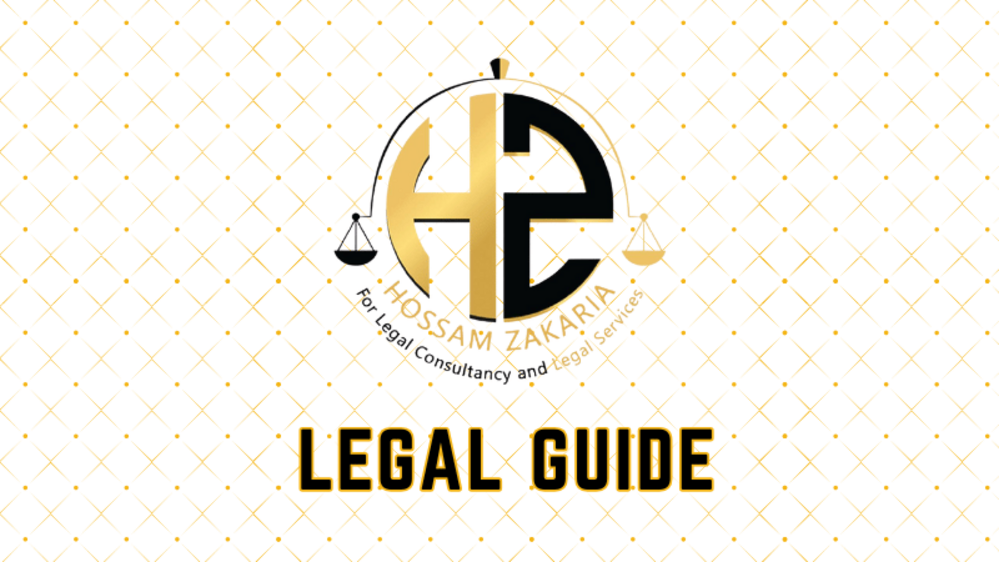Introduction
The rapid evolution of artificial intelligence (AI) across the GCC is reshaping business strategy, technological development, and legal landscapes. Nowhere is this transformation more pronounced than in Qatar, which, under the Qatar National Artificial Intelligence Strategy, has emerged as a leading regional hub for AI-powered innovation and investment. For UAE-based businesses, this surge is not merely an opportunity for growth, but also a harbinger of new cross-border legal obligations. As regulatory frameworks mature across the region, UAE companies must navigate a complex web of compliance, investment risk, and operational strategy to maximize returns from Qatar’s AI ecosystem while aligning with the latest UAE law 2025 updates. This article provides an expert legal consultancy analysis on AI investment opportunities in Qatar, the evolving legal frameworks in both Qatar and the UAE, and practical guidance on compliance, risk mitigation, and strategic entry for 2025. These insights are essential for business executives, legal practitioners, and compliance officers seeking sustainable, legally-sound cross-border operations in the GCC’s dynamic technology sector.
Table of Contents
- Qatar’s AI Landscape: Regulatory Momentum and Opportunity
- UAE Legal Framework 2025: AI Investment, Data Protection, and Cross-Border Compliance
- Comparative Analysis: Qatari and UAE AI Legal Ecosystems
- Structuring AI Investments: Legal Pathways for UAE Firms
- Compliance Risks and Mitigation Strategies
- Case Studies: Navigating Real-World AI Investment Challenges
- Practical Recommendations for UAE Businesses – 2025 and Beyond
- Conclusion: Shaping the Legal Future of Regional AI Collaboration
Qatar’s AI Landscape: Regulatory Momentum and Opportunity
1.1 Qatar National Artificial Intelligence Strategy
In the wake of the Qatar National Artificial Intelligence Strategy launched in 2019, the country has invested heavily in AI research, digital transformation, and sector-specific applications (such as healthcare, finance, and logistics). This national agenda, overseen by Qatar’s Ministry of Transport and Communication (MOTC), prioritizes ethical AI adoption, digital infrastructure, and international collaboration, rendering Qatar an attractive AI investment destination for UAE businesses eager to participate in the GCC’s digital revolution.
1.2 Key Regulatory Developments Affecting Investors
While Qatar does not yet have a comprehensive AI law comparable to the upcoming EU AI Act, as of 2025, regulatory initiatives are advancing in several domains:
- Data Protection (Law No. 13 of 2016): Qatar’s Personal Data Privacy Protection Law sets a foundational compliance requirement for AI solutions that process personal data. Foreign investors must ensure robust data governance to avoid regulatory penalties.
- Cybersecurity: The Qatar National Cybersecurity Strategy strengthens sector-specific requirements for technology and financial companies operating AI applications.
- Sectoral Guidelines: The Qatar Central Bank, Qatar Financial Centre, and the Ministry of Public Health have issued guidelines governing AI deployment in banking, insurance, and healthcare.
These frameworks illustrate the importance of early legal engagement for UAE companies intending to deploy or commercialize AI technology in Qatar.
UAE Legal Framework 2025: AI Investment, Data Protection, and Cross-Border Compliance
2.1 Federal Decree-Law No. 45 of 2021 on Personal Data Protection (PDPL)
The UAE remains at the forefront of digital regulation in the region. The Federal Decree-Law No. 45 of 2021 concerning the Protection of Personal Data (PDPL), implemented by Cabinet Resolution No. 6 of 2022, sets out comprehensive obligations regarding the collection, processing, and international transfer of personal data — all crucial for AI investments.
- Cross-border transfers require adequate protection guarantees or explicit consent.
- Failure to comply may result in administrative fines, business suspension, and reputational damage.
- Extraterritorial effect: The PDPL applies to controllers and processors both inside the UAE and abroad, if processing relates to individuals in the UAE.
2.2 Upcoming 2025 Legal Updates: AI and Technology Regulation
With the UAE’s ongoing AI and digital strategy (UAE AI 2031), new Federal and Cabinet regulations continue to emerge regarding:
- AI application risks and ethical standards;
- Robust cybersecurity mandates;
- Technology service outsourcing;
- Sector-specific compliance in finance, health, education, and critical infrastructure.
2.3 Highlights of Law Comparisons: Past and Present Regulations
| Legal Topic | Pre-2021 Framework | 2021-2025 Framework & Implications |
|---|---|---|
| Personal Data Protection | Fragmented sectoral rules, limited extraterritorial reach | Unified PDPL (Federal Decree Law No. 45/2021), broad territorial scope |
| AI Regulation | No AI-specific regulation | Sectoral standards, ethics codes, draft AI-specific guidelines being developed |
| Cross-Border Data Transfer | Limited restrictions, sectoral exceptions | Formalized transfer mechanisms, higher compliance bar |
| Enforcement Powers | Scattered, mainly sector regulators | Centralized via UAE Data Office; increased investigation & penalty powers |
Comparative Analysis: Qatari and UAE AI Legal Ecosystems
3.1 Core Regulatory Similarities and Divergences
| Aspect | Qatar | UAE |
|---|---|---|
| AI-Specific Legislation | Not yet; sectoral guidelines and strategy documents | Drafting in progress as of 2025; sector codes in effect |
| Data Protection Core Law | Law No. 13 of 2016 | Federal Decree Law No. 45 of 2021 |
| Cross-Border Scope | Limited; applies primarily within Qatar | Broad; extraterritorial reach for UAE data subjects |
| Compliance Enforcement | Ministry of Transport & Communication, Cybersecurity Centre, sector regulators | UAE Data Office, various sector regulators |
3.2 Implications for UAE Business Investors
UAE entities seeking to invest in or partner with Qatari AI companies must ensure dual compliance. For example:
- Deploying an AI-powered HR solution from Qatar in a UAE operation requires:
- Full PDPL compliance in handling UAE employee data, even if processing occurs offshore.
- Alignment with Qatar’s restrictions on data localization and sector-specific protocols.
- Operating joint R&D initiatives: Non-compliance in either jurisdiction can halt operations or trigger fines from both regulators.
Structuring AI Investments: Legal Pathways for UAE Firms
4.1 Entry Modes: Greenfield, Joint Ventures, and Channel Partnerships
When evaluating Qatar’s AI sector, UAE businesses typically select among three main models:
- Greenfield Operations: Direct establishment of AI development hubs or subsidiaries in Qatar. This route offers full control but higher exposure to licensing, employment, and localization compliance obligations.
- Joint Ventures: Partnering with Qatari entities to combine local market knowledge with UAE capital or technology. JV agreements must rigorously address IP sharing, data handling, and dispute resolution clauses referencing both Qatari and Emirati law.
- Channel Partnerships/Distribution: Licensing Qatari-developed AI solutions. These arrangements must granularly define liability, data sovereignty, and regulatory oversight.
4.2 Essential Legal Documentation
- Technology Transfer Agreements: Should specify jurisdiction, ownership of improvements, and compliance responsibilities.
- Data Processing Addenda: Mandated by both Qatar and UAE data protection law; must align with the most stringent requirements applicable.
- Board Resolutions & Regulatory Filings: Required by Qatari authorities for foreign investments and technology approvals.
Providing a visual checklist of the documents needed for cross-border AI investment will improve compliance and smooth operational launch.
4.3 Example Table: Stepwise Compliance Checklist
| Step | Legal Requirement |
|---|---|
| 1 | Conduct legal due diligence on potential Qatari partner/licensee |
| 2 | Assess regulatory licensing needs (Qatari authorities, sector regulators) |
| 3 | Draft and negotiate contractual terms; ensure PDPL and Qatari data law alignment |
| 4 | File required applications with Qatari and UAE authorities |
| 5 | Implement internal controls, appoint Data Protection Officer(s) |
| 6 | Monitor ongoing compliance, regulatory developments |
Compliance Risks and Mitigation Strategies
5.1 Major Risks for UAE Businesses Investing in Qatar AI Ventures
- Dual Jurisdiction Non-Compliance: Overlooking new UAE PDPL requirements or Qatari sector guidelines can lead to simultaneous breaches and compounded penalties.
- Data Transfer Violations: Cross-border processing without appropriate contracts or authorizations risks enforcement action.
- Cybersecurity Shortcomings: Insufficient controls expose critical infrastructure to cyber incidents or regulator-mandated shutdowns.
- Sector-Specific Liabilities: Non-compliance with financial, health, or education AI standards can trigger fines, revocation of licences, or litigation.
- Reputational Harm: Regulatory findings or data breaches can impact trust and cross-border business eligibility.
5.2 Penalty Framework
| Jurisdiction | Regulation | Maximum Fine |
|---|---|---|
| UAE | PDPL (Decree Law 45/2021) | Up to AED 5 million per incident (administrative) + criminal referral for grave breaches |
| Qatar | Law No. 13 of 2016 | Up to QAR 1 million per violation + corrective orders |
Suggested Visual: Penalty Comparison Chart for instant clarity on cross-border risks.
5.3 Mitigation Tactics
- Engage dual-jurisdiction legal counsel prior to contract signing or technology deployment.
- Deploy privacy-by-design and built-in cybersecurity controls for AI applications.
- Appoint or contract accredited Data Protection Officers in both jurisdictions.
- Utilize regular training for cross-border compliance teams.
- Monitor for legislative updates via official sources: UAE Ministry of Justice, Qatar Ministry of Transport & Communication.
- Conduct mock audits and implement a robust breach response plan.
Visual suggestion: Process flow diagram for AI investment, spotlighting compliance checkpoints.
Case Studies: Navigating Real-World AI Investment Challenges
6.1 Hypothetical Case: UAE FinTech Firm Launching AI-Enabled Payments in Qatar
A UAE FinTech SME partners with a Qatari digital bank to launch an AI-driven payments platform. Initial documentation overlooks Qatari localization rules on customer data, and the UAE firm fails to conduct a Data Protection Impact Assessment (DPIA) as required by the UAE PDPL for high-risk AI processing.
- Regulatory Outcome: Qatar regulators restrict platform launch until compliance gaps are closed. UAE Data Office issues an advisory warning regarding DPIA non-compliance.
- Prevention: Early legal review and joint compliance workshop between UAE and Qatari teams would have prevented costly delays.
6.2 Case Commentary: Cross-Border AI Health Tech Investment
A Dubai-based health tech firm invests in a Qatari AI diagnostics startup. The two companies must harmonize patient data handling under both the UAE PDPL and Qatari Law No. 13. Formal contracts stipulate data residency, encrypted transfers, and a joint protocol for responding to data subjects’ access requests. The project launches smoothly—demonstrating the power of preemptive legal harmonization.
Practical Recommendations for UAE Businesses – 2025 and Beyond
- Update Internal Policies: Reflect new legal obligations under Federal Decree-Law 45/2021 and anticipate forthcoming AI guidelines in both jurisdictions.
- Embedded Compliance: Integrate legal review into all stages of AI investment—due diligence, contract, deployment, and post-launch operations.
- Third-Party Management: Diligently vet Qatari partners for compliance history; implement audit rights in contracts.
- Staff Training: Regularly upskill HR, IT, and legal personnel on cross-border data and AI law updates.
- Monitoring and Reporting: Proactively track regulatory changes via UAE’s Federal Legal Gazette and official Qatari government portals; subscribe to Ministry advisories and consider automated compliance solutions where feasible.
- Strategic Legal Partnerships: Engage external counsel or consultants experienced in both UAE and Qatari legal systems—the complexity of cross-border AI investment demands specialist support.
Visual suggestion: Compliance roadmap or Gantt chart showing key activities by phase for AI investments in Qatar.
Conclusion: Shaping the Legal Future of Regional AI Collaboration
As Qatar cements its role as a catalyst for AI innovation, UAE businesses are strategically well-positioned to lead cross-border digital transformation. However, the confluence of evolving Qatari regulations and progressive UAE legal reforms—especially under Federal Decree-Law No. 45 of 2021 and its anticipated 2025 updates—raises the stakes for legal compliance and strategic foresight. A proactive, consulting-led legal strategy ensures that AI investments not only flourish commercially but also withstand the scrutiny of dual regulatory regimes.
The trajectory of GCC AI regulation will increasingly favor organizations that invest in compliance infrastructure, cross-jurisdictional expertise, and continuous monitoring. The next phase of AI-driven business, particularly for UAE-based investors, will demand not just technological innovation, but legal alignment, cultural awareness, and collaborative governance. Institutions that adapt now will shape—and benefit from—the region’s AI-powered future.
Key Takeaways
- Understand new legal frameworks in both UAE and Qatar that impact AI investments in 2025.
- Establish rigorous compliance practices across contract, data, and operational domains.
- Leverage legal advisory partnerships to stay ahead of regulatory developments.
- Adopt an integrated, forward-looking compliance roadmap to unlock enduring market value.



